Footy’s tectonic plates were shifting when Brian Cook was neck and neck in a race with Andrew Demetriou to become AFL chief executive.
But in a decision that legendary Sydney chairman Richard Colless would later rue as the game’s sliding doors moment, AFL Commission chairman Ron Evans lobbied hard at the death for Demetriou.
That was July 2003, and how different football might have been.
“I did think at one stage that I was up there, but it wasn’t to be,” Cook says.
Headquarters’ loss was clublands’ gain.
Across a remarkable 35-straight seasons (and 28 finals series), Cook, 69, has sat in the big swivel chair as CEO of the West Coast Eagles, Geelong and now Carlton – where the dream of a sixth career premiership remains alive in Saturday night’s elimination final against the Brisbane Lions at the Gabba.
“People often ask me, ‘Where do you continue to get your motivation and energy from?’ and I say, ‘I don’t know – I’ve just got this inner fire to do well,” he says.
“In the early days I thought the job was simply about winning games, but as you get older you realise it’s about a lot more than that.
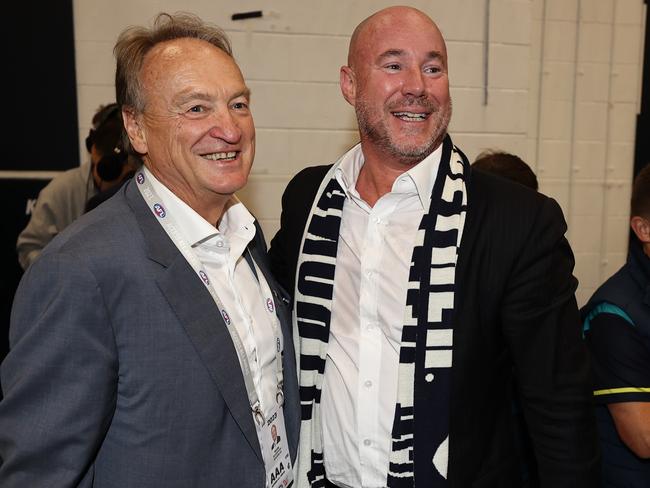
“It’s about developing a good plan and good people and understanding what your club’s competitive advantages are – and not wasting your time on all the small stuff.”
SCOTLAND TO AUSTRALIA
Cook was two when his parents and older brother boarded a ship in Scotland and immigrated to Australia in 1957.
They settled in South Melbourne and opened a corner store in Dorcas St, but the business failed and the marriage fell apart. At age nine, Cook watched his mum take an overdose of pills and commit suicide.
“She did that in front of me and my brother,” he says.
“We weren’t quite sure what she was doing but she passed away that night.”
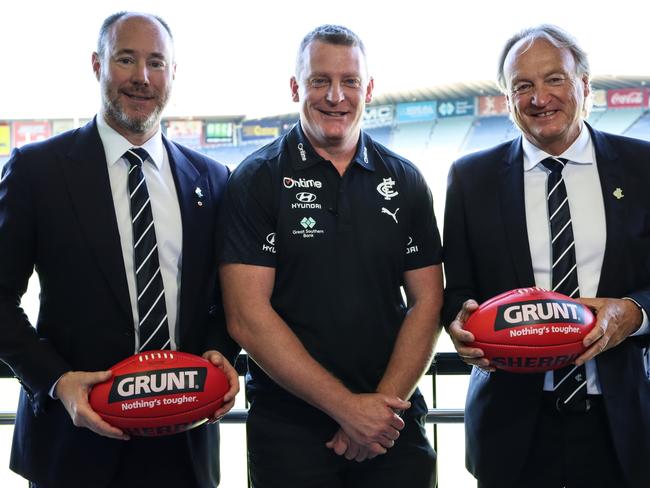
The brothers moved back to Lanarkshire in Scotland to live with their great-grandmother and were bullied at school for their Australian accents.
“We felt like immigrants in our own country of birth,” Cook says.
“I learned a lot about unfair prejudices and grew up so much in those four years. I became street-smart. Locals would gossip about my mother’s death and how it might have occurred. They were not aware. It was kept quiet.
We just had to cope and from a young age and I got to learn how useless rumour and innuendo was or people telling fibs and I’ve taken that right through my life, even in football – you don’t sugar-coat anything.
Cook returned to Melbourne at 13 to live with his father and stepmother and left home at 17, working Friday night shifts packing shelves at Safeway in Forest Hills until 3am before a Saturday morning bakery run in Springvale – all while completing his matriculation.
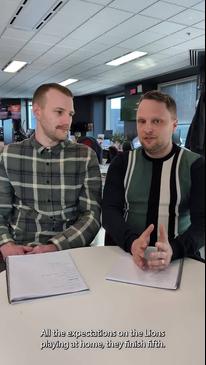
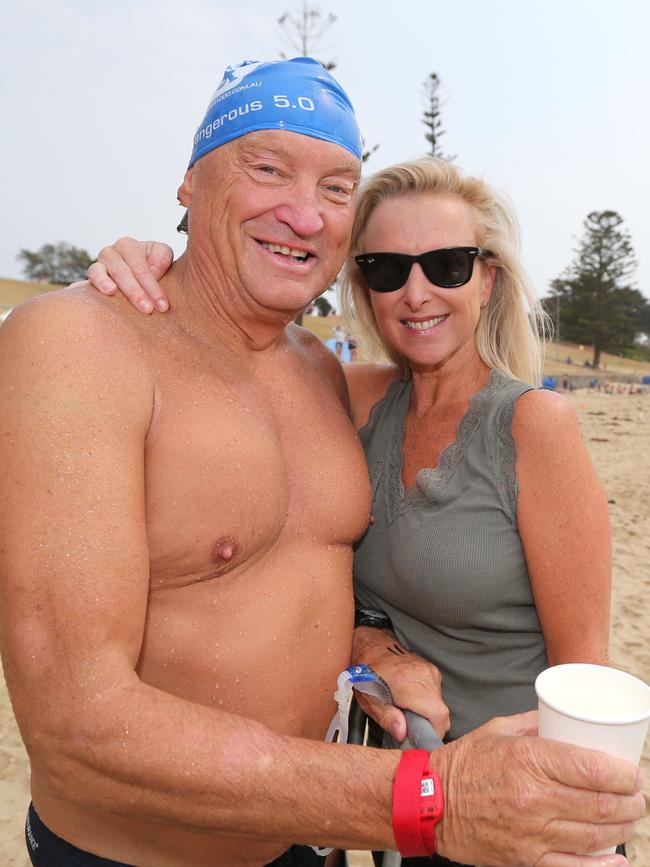
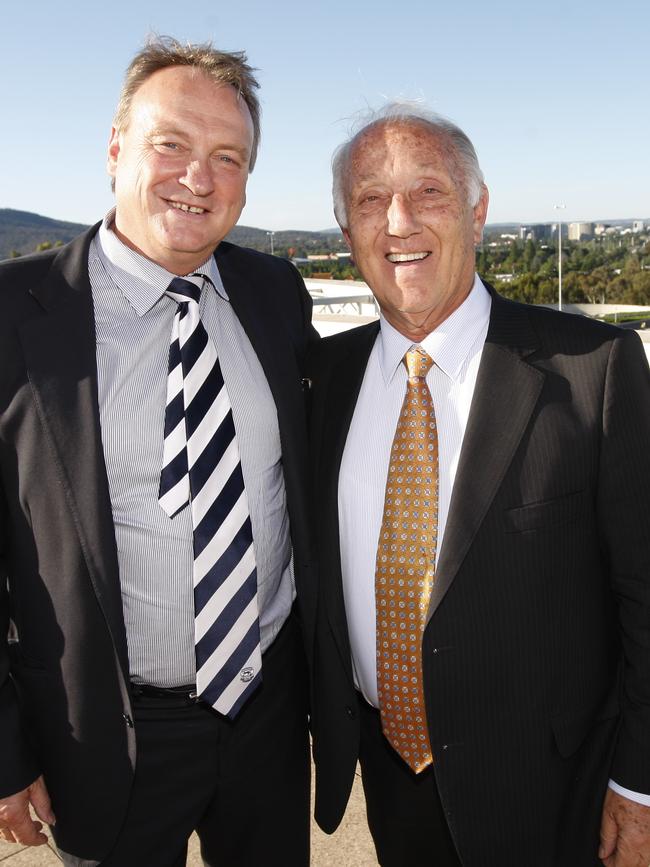
“It was a difficult time, but it gave me my finances for the week,” Cook says.
He went to Rusden Teachers’ College and qualified as a physical education teacher.
“I did some bricklaying, carparking and worked in an abattoir for three months on uni holidays,” he says.
BRIAN THE BOXER
Cook was also handy with his fists, winning two Australian schoolboy boxing championships in the bantamweight and flyweight divisions.
“I was pretty good – I was undefeated over a two-year period,” he says.
“I’d got into a lot of fights in the schoolyards in Scotland, but I felt in the end that it was a bit of a mugs’ game and getting bashed around wasn’t for me.”
Football became his focus and by 18, Cook was playing seniors for Box Hill in the VFA.
“I thought I had some ability and decided just to turn up at Hawthorn one day with a friend, Ian Scrimshaw,” he says.
“No one asked me down, but I was a pretty determined young fellow. I ended up making the senior squad after playing pretty well in the practice games.”
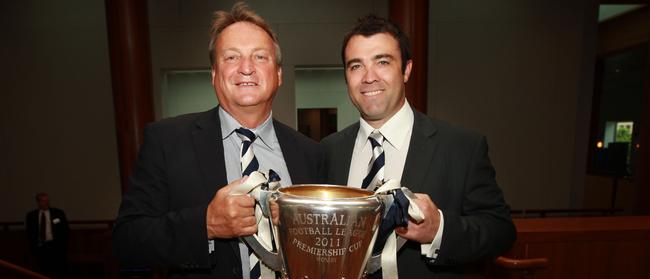
Cook promo 2
But it was the great John Kennedy-Leigh Matthews era and after 50 reserves matches Cook made a move to Melbourne.
“No one spoke to John,” he quips. “I had two years there and spoke to him maybe twice. Leigh Matthews was no different, I can’t even remember speaking to him (laughs) but Scotty (Don Scott) was good to me.”
Scott recalls a fit and fearless player, who was low on pace.
“Cooky was just a goer. And I appreciate people who just have a go, because a lot of people don’t,” Scott says.
“When you ask John O’Mahony, who was the reserves grade coach, he said that of all the Hawthorn players Brian Cook was his favourite because he just had a red-hot go.”
THE LEGENDARY ADMINISTRATOR IS BORN
Cook played four senior games under Bobby Skilton at the Demons in 1977 before he moved to Perth to study a masters degree while playing in the WAFL.
His foray into sports administration began in 1982 when he picked up a job as Western Australia’s athletics development officer.
After a stint in Canberra as a national research co-ordinator for the Australian Sports Commission while captain-coach of Ainslie, Cook was named chief executive of the West Australian Football Commission and in 1990 – “after the Eagles ran out of shareholder money” – was installed as the club’s CEO at the start of the Mick Malthouse era.
“Mick brought a great Victorian mentality and we started winning games,” he says.
“It got the crowds in and we developed a business model in Perth that worked. We were the first to introduce seat premiums which set the standard for the next 40 years.”
Perth’s climate suited Cook’s love of distance swimming and he completed 12 successful solo crossings in the annual 20km Rottnest Island swim.
FRANK COSTA: COOK’S ‘BEST FRIEND AND MENTOR’
After nine years and two premierships at West Coast, Geelong president Frank Costa came knocking.
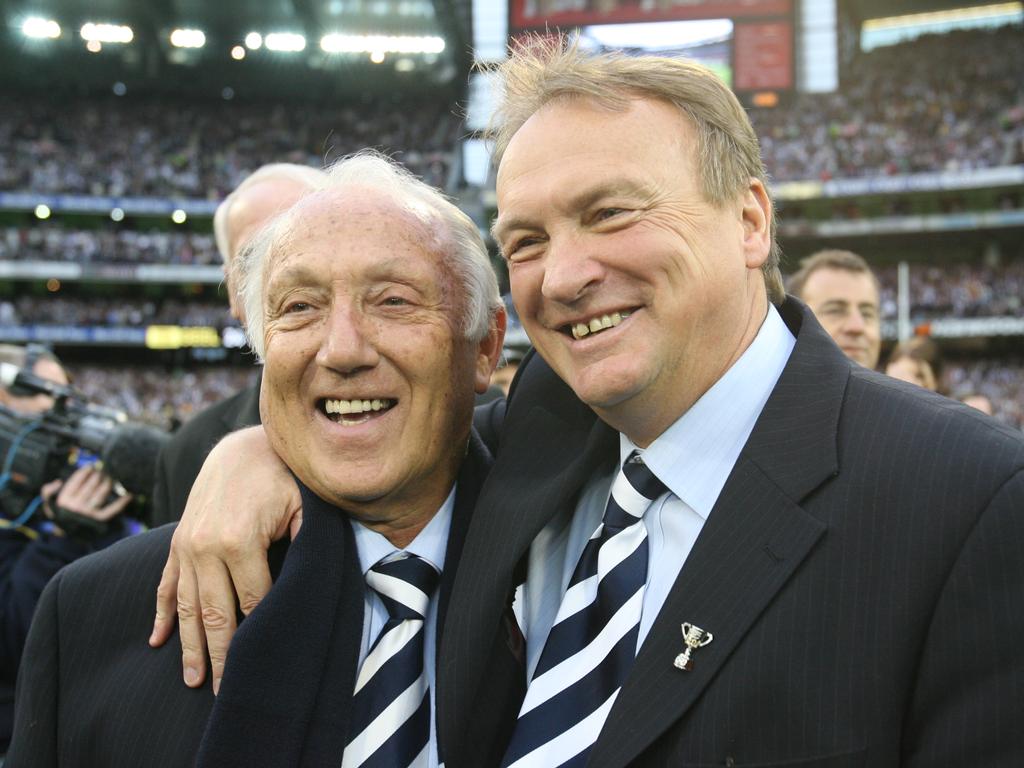
“I remember going to Frank’s Derrimut office and on the wall he had a big sign that said ‘character first, talent second’. That was his motto and that really struck me and we hit it off,” Cook says.
He became my best friend, my mentor and he was my boss –— you don’t get that combination very often.
Under Cook, the Cattery became a state-of-the-art fortress and Mark “Bomber” Thompson’s team won two flags before a third in 2011 after the shrewd appointment of Chris Scott.
On the 2003 race against Demetriou and Colless’ view that he would have led the AFL with “a far less confrontational approach”, Cook says diplomatically: “Culture and values could probably have played a more prominent part in the AFL’s development – that’s the best way for me to put it. That was then.
“Whether it would have worked, I don’t know – but I’ve never known it not to work.”
A second chance presented when Demetriou quit in 2014, but again Cook was overlooked.
“I had no chance, that was always Gill’s,” he says.
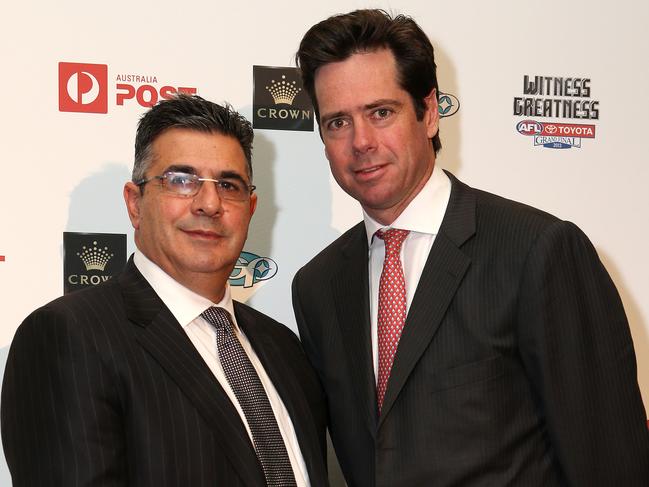
But during his final interview, Cook delivered some home truths to the AFL Commission.
“I was still a bit fiery in those days,” he laughs.
“I made a couple of comments I probably shouldn’t have. Maybe I should have pointed out what they were doing right, rather than what they were doing wrong. Can I leave it at that?”
THE BLUES COME CALLING
Retirement and plans to “see my grandkids a lot more” were put off when Carlton president Luke Sayers called out of the blue while the Cats were in a Covid hub in Perth towards the end of 2021.
“I had already accepted a position at Geelong working as a consultant on their foundation but then Luke rang me,” he says.
“I said, ‘Come back after we finish the season’.
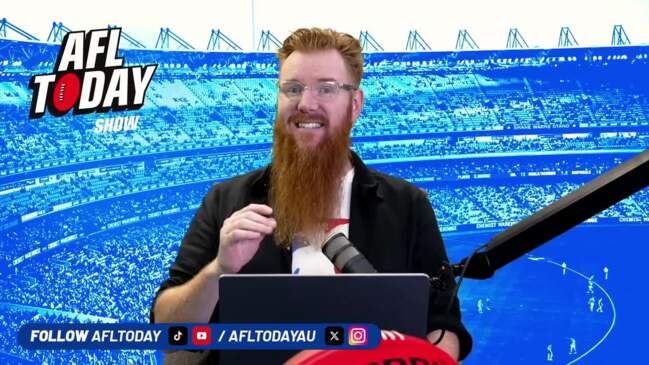
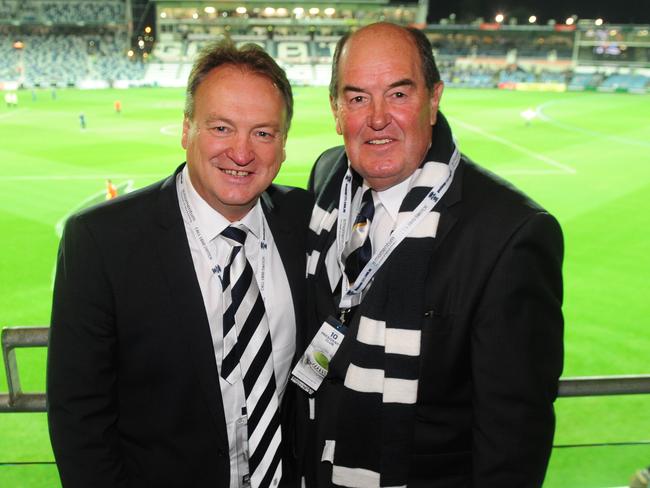
“The first day after we were knocked out by Melbourne in the preliminary final in Perth we got out of quarantine and I went for a long walk from Fremantle to Scarborough and on the way I got phone calls from Ian Collins and David Parkin and it all started – the Carlton mafia came after me.
“Quite often you go in and make lots of changes, but I didn’t do that at Carlton.
“We appointed Vossy (coach Michael Voss) and basically put together four workshops and just asked the questions – where are we now and where do we want to be in four years’ time? We restructured the club and put together a new set of values.
Carlton had some big strengths but they also had some gaps. It had talented people and great resources – and a passionate fan base … more audible than Geelong’s … but one of the things that stood out to me when I got there was that the governance wasn’t as strong as it needed to be.
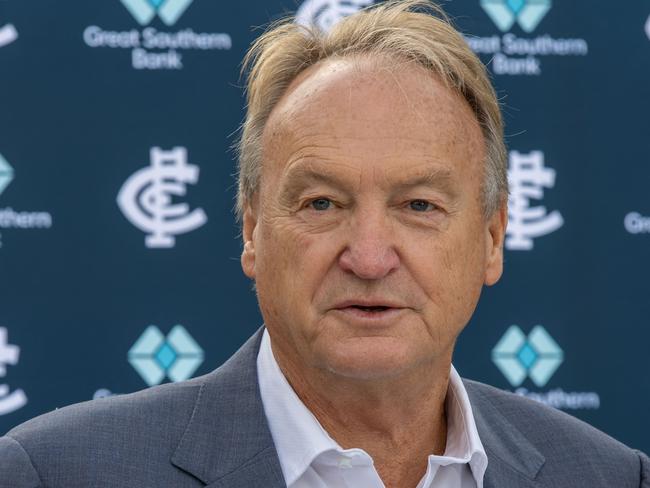
“There were something like 14 subcommittees that were directed largely by board members, so it was very much a board-driven management and we had to try to change that. There’s a better balance now.”
Cook’s arrival has also seen a simmering of the warring factions that have divided Carlton since the club’s salary cap rorts two decades ago.
“As a CEO, we often make the mistake where we don’t respect the past enough and in doing so you really carve out a bit of history that we shouldn’t,” Cook says.
“I respect our past players and I treat everyone that way – but at the same time you can’t be handcuffed by the past and let the past dictate the future, particularly premiership players, boards and coaches – they do have an influence.
“I think we are heading in the right direction – it just takes time.”
Cook is adamant 2025 will be his swan song.
“Next year is my last year,” he says.
Can you be talked out of it?
“I don’t think so, we are already talking about succession.”
As for that sixth premiership before he’s done, Cook says: “I’d love for that to happen – mainly for the Carlton people who have been here for the last 30 years trying to get it done – but there’s still a lot of work to do. There always is.”

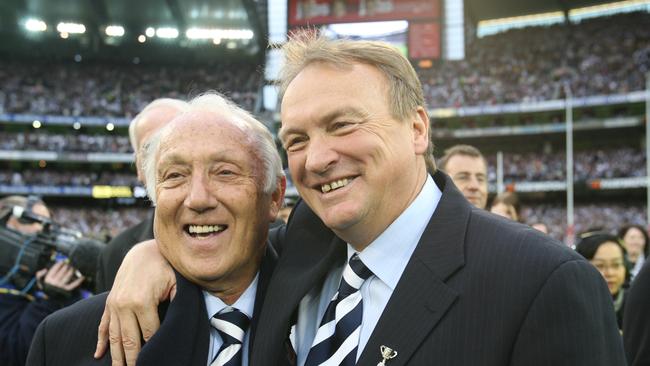
Add your comment to this story
To join the conversation, please log in. Don't have an account? Register
Join the conversation, you are commenting as Logout
Breakout Bulldog? Young gun steps up to fill Treloar void
Just days after Adam Treloar’s injury, a young gun at the Dogs has staked his claim for a spot in their midfield, as Luke Beveridge waits on scans that could cause another selection headache.
Blue bolter? Unknown young gun turning heads at pre-season
The Blues are in no rush to decide on their final list spots for the upcoming season, but one VFL livewire is doing all he can at pre-season to get himself on the list.